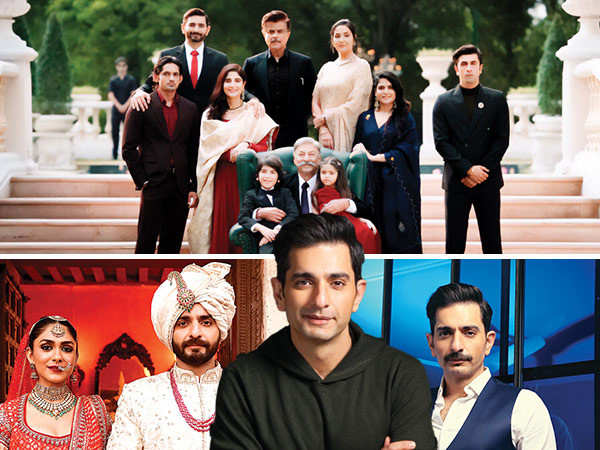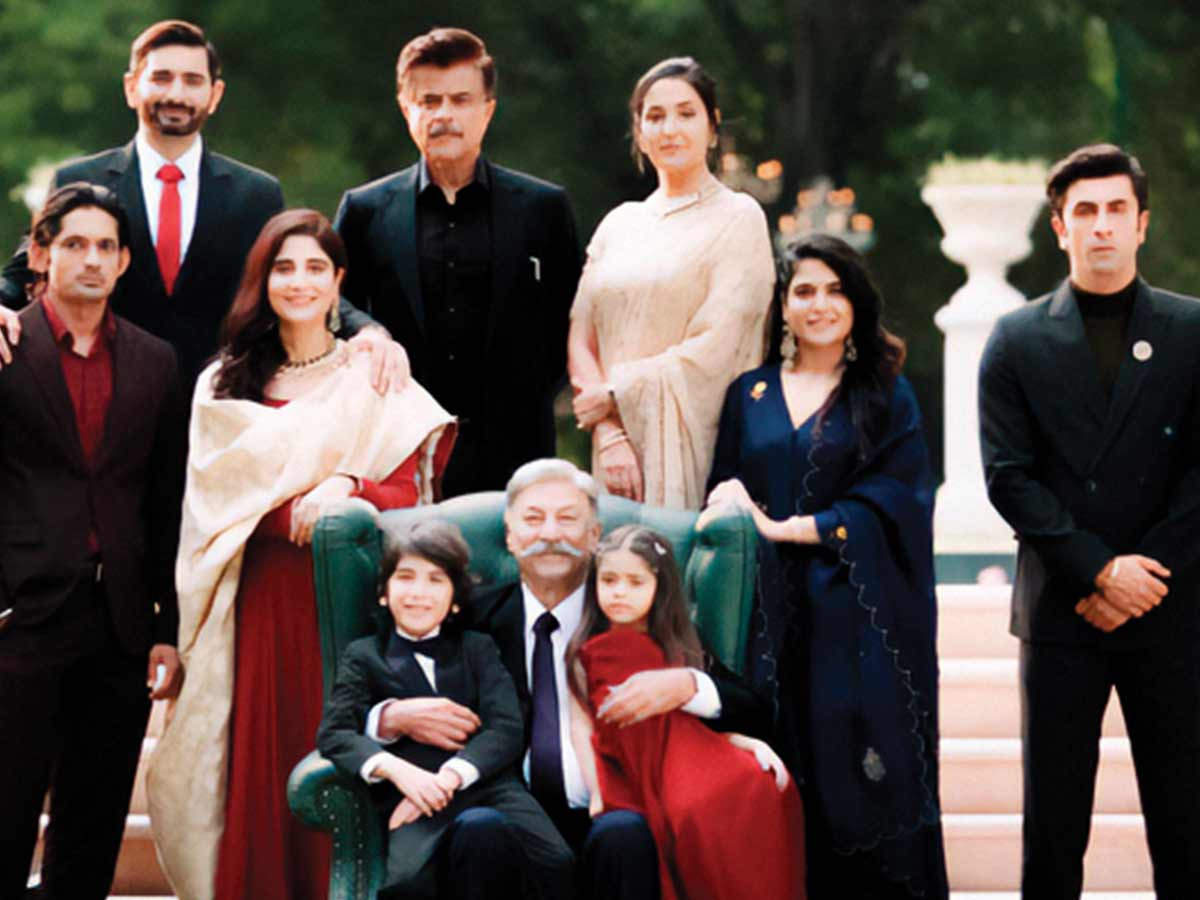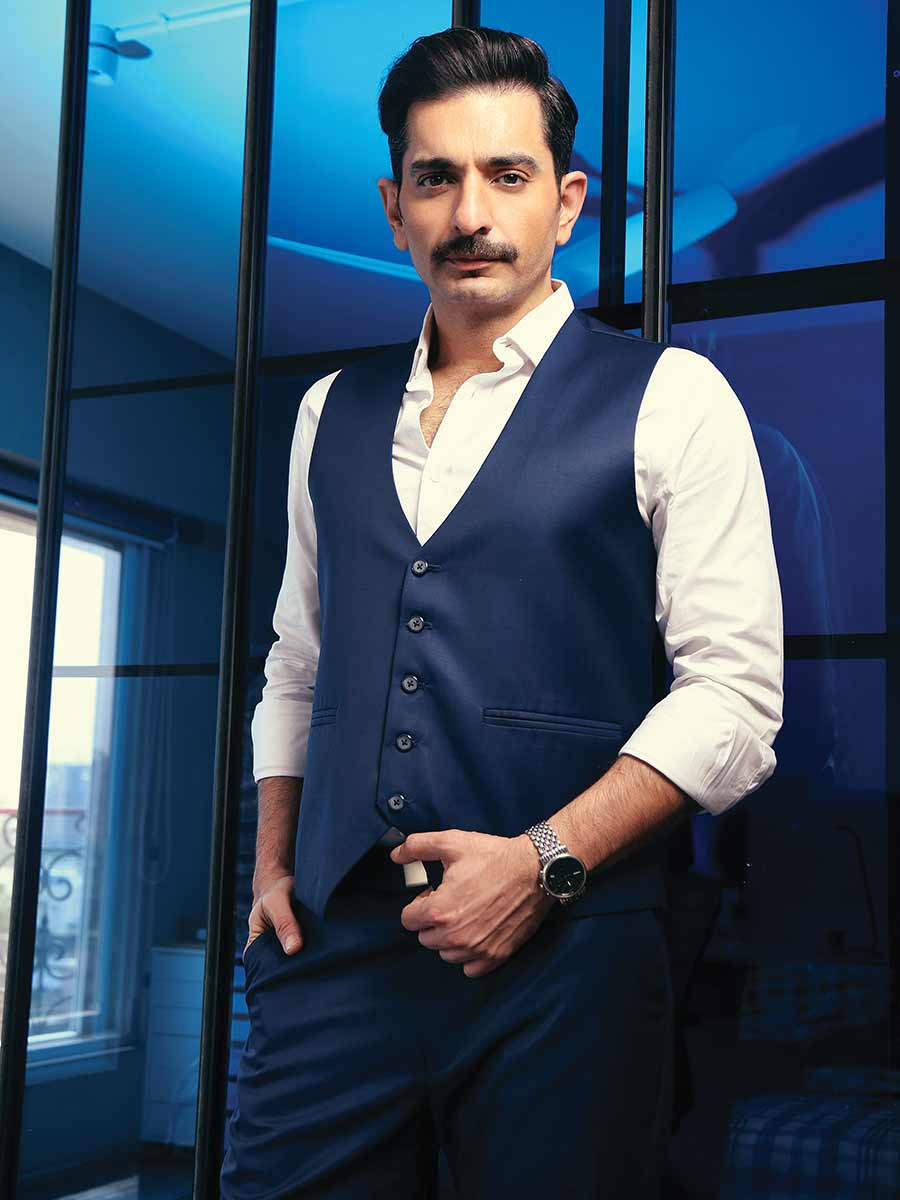
How did you get the role in Animal?
I got called directly to meet the director, Sandeep Reddy Vanga. I spent two hours with him, and he told me only about the character graph in the story. He played a song that he had in mind for that strangling scene, and he described it so vividly. We started talking about dates, and I said, “But don’t you want to audition me before or do a reading or something?” It turns out that five years ago, he saw me in a commercial and clocked me from there. He needed somebody, jo Ranbir ko takkar de sakta hai. Someone who comes across as a nice guy but has this other side. He got all that from one ad.
What went into filming that strangling scene?
I was intimate with Ranbir during the strangling scene. I knew that a lot of the girls all across the world would be so jealous of me being in that position with Ranbir. So I automatically felt good. His professionalism and approach to action are so good. I was on top of him, and when a star is shooting, it’s not just about the star. He’s also an asset. If anything happens to the star, the shooting stops. There’s so much money riding on that, especially during an action sequence, so one must be careful. In the strangling scene, the first reflex was to go towards the face. Scratch his eyes out or something. But I can’t do that because it’s a stylized film. So we worked out the flailing of the legs, which worked. When you cut a chicken, the legs move the most when the head goes off. Sandeep played the same background music as the narration. That clarity of thought that this man had from the very beginning was amazing.

Many found your death in the film satisfying. Was it the same for you?
I’ve lost count of my screen deaths. But this was the first time I felt, “Oh man, that bastard deserved to die.” None of us knew the full story until we saw the film. I didn’t know how much screen time I had. But once I saw the film, I felt happy that my character had died.
How do you feel about the polarising views around the film?
What is art supposed to do? Art is supposed to make you feel intense. Now, beyond that, as an artist, I don’t have any responsibility. We’re going beyond entertainment and commercial success. I want everybody to have different views of the art that we create. It left us with something to talk about. People are talking about it even now.
What were some of the best parts about getting famous all of a sudden?
I read a comment on a post that said, Abrar jaisa villain mile na mile, Varun jaisa Jijaji kabhi na mile. Throughout Indian cinema, Jijaji has always been looked upon as a nice guy, the loving guy, and the guy you can always go to in the family for advice and all that. I’m getting appreciated for breaking that stereotype.
What were some of your biggest learnings from Ranbir Kapoor and Anil Kapoor?
I was always appreciative of Ranbir’s choices. But to work with him one-on-one in scenes and action made me realise that he is one of the greatest actors we have. It is so refreshing to come across a professional first and a star later. I always prided myself on being a professional, but Ranbir showed me how I can be much better. With Anil sir, I realised how he stays so young. We keep saying it is the elixir of youth. I closely studied him, and I realised that it came from his innate passion for filmmaking. He loves every stage of it. And that’s what keeps him young and fresh.
You didn’t share screen space with Bobby Deol, but what were your interactions with him like?
I had an interaction with him at the premiere. I went up and told him what a great fan I was. He told me how he got cast in the film. He took out his phone, and he showed me a picture. And he said this is a picture that Sandeep saw and cast him. I was like, I got cast because of an ad film that he saw five years ago. We laughed and bonded over that. He’s a veteran who’s been through various ups and downs and suddenly finds himself back up as Lord Bobby. I got some immense good energy from that man.

There is an uncomfortable scene where you throw a cigarette butt on your screen partner’s face…
We’re all professionals here to do a job, and so that is what helped me perform that scene, rather than get stuck up in my own hang-ups of what Siddhant would do and what my character Varun Malhotra would do. Saloni Batra and I created a backstory for our respective characters. We would sit down and say, “Why is she still with him? She’s got all the backing, and she’s got the financial freedom. She’s got everything she needs to walk out of this marriage. Why is she still choosing to be there?” We had to find a solid reason. So we said okay; it’s just because the sex is that great. It’s that toxic relationship between them, which maybe also manifests in their sexual lives. It’s these things that we as actors put in place to make it more convincing for ourselves to do our scenes better.
What did it take to make the shift from TV to film?
Many years ago, I took a conscious break from television, which was a very lucrative job. But I realised that I wanted to be working with the best storytellers. I’ve had very testing times. I’ve had just 2000 rupees in my savings account, which made me question all the decisions I made. When I do TV, it’s more quantity than quality. I’m shooting 12–14 hours a day, 30 days a month, putting in the time. It’s more about the endurance than the quality of the performance. When I do films, I know my producer needs me to be quality-oriented rather than quantity-oriented.
What were some of the jobs you took up along the way?
I used to do voice overs for cartoons, like Scooby-Doo, and I’m a completely different performer there. I’ve also voiced the king in Chhota Bheem. It’s been 20 years. You try to find money wherever you can. In theatre, I bring a different kind of process as an actor. I don’t understand this outsiders vs insiders debate. I am all for nepotism, to be very honest. If I work hard in my industry and become super successful and I have a child, I want that child to get all the best he can. But people should also appreciate the other actors who come from outside. When I needed money and there was nothing nice to do, I did a shirt catalogue where I would change 50 shirts in two hours. And get paid a hundred rupees per shot. Those would only go on stores in tier-two cities. That has taught me to change very fast on set because I know it’s the producer’s time that goes to waste. The more time I can save for my producer, the better employee I’m being to them. So all these experiences count. I humbly wish that the industry acknowledges outsiders and gives us more chances.

SHOW COMMENTS